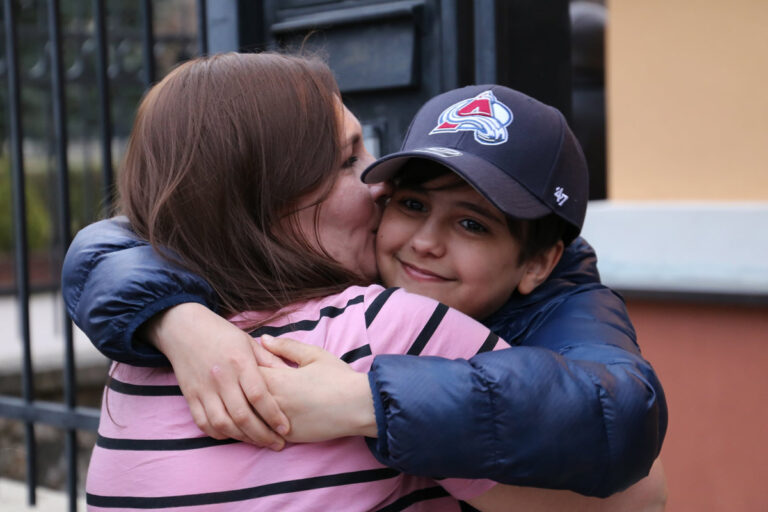Young boy who fled Ukraine alone REUNITED with his mum in tear-jerking moment
While Russia continues to invade Ukraine, one particular story made headlines earlier in March—an 11-year-old boy crossed the Ukrainian border alone in order to flee the country and find his relatives. Fast forward to mid-March, and the boy’s 750-mile trek now has a positive update as he has successfully been reunited with his mother.
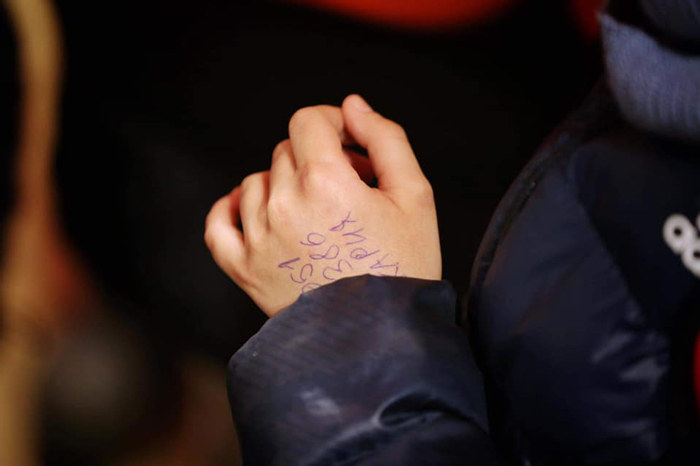
Slovakian police previously shared the story of Hassan Pisecká, the bright and beaming boy in question, who fled Ukraine by himself in search of his relatives—with only a passport, a note from his mother and a phone number written on his hand. The boy travelled 1,000 kilometres by train to Bratislava, Slovakia, all the way from Zaporizhzhia in southeast Ukraine. Pisecká is among the estimated one million children who have ventured out of the war-torn country, according to ABC News.
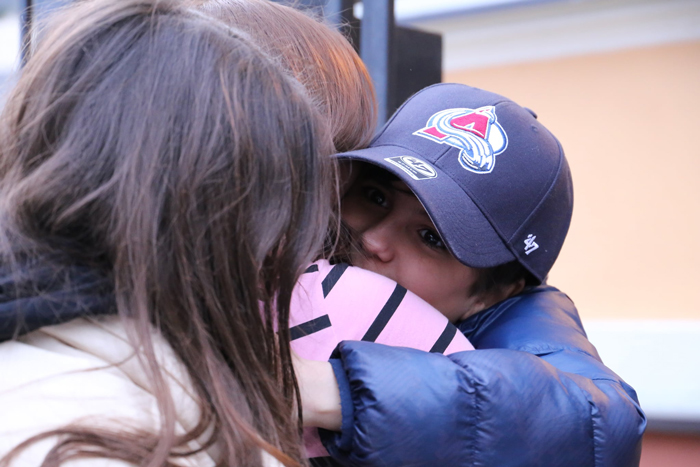
It’s been reported that the young Pisecká has now joined his mother and widow, Júlia Pisecká Volodymyrivna, in a heartwarming tale of reunion between the family members. While the boy fled the unstable turmoil of Ukraine in the midst of the raging war, his mother stayed behind to take care of his 84-year-old grandmother who was immobile and, therefore, unable to flee.
In a video statement, Pisecká’s mother thanked officials who helped her son and explained why she couldn’t travel with him at the time. “I can’t leave my mother, who is 84-years-old and who can’t walk on her own. That is why I put my son on a train to the Slovakia border where he was met by people with big hearts,” she said.
Prior to this crisis, the family had to flee Syria without Pisecká’s dad years ago. In this regard, the Slovakian police forces went on to state: “They lost everything again, but this time the war didn’t take anyone away from them.”
However, in an uplifting turn of events, Pisecká’s mother, grandmother and their dog have also managed to flee and join him and his other siblings since then.
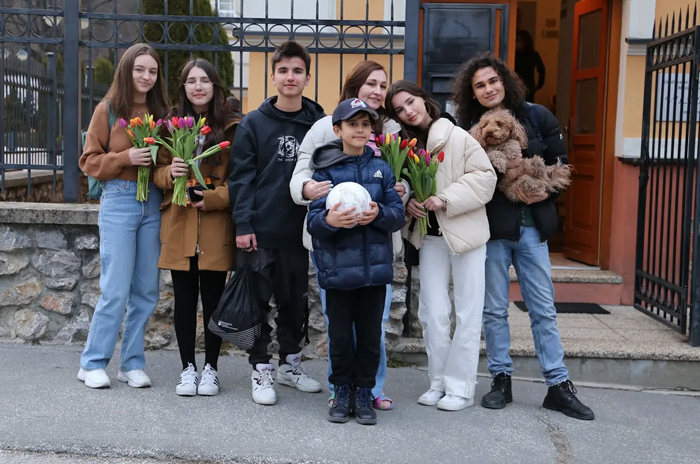
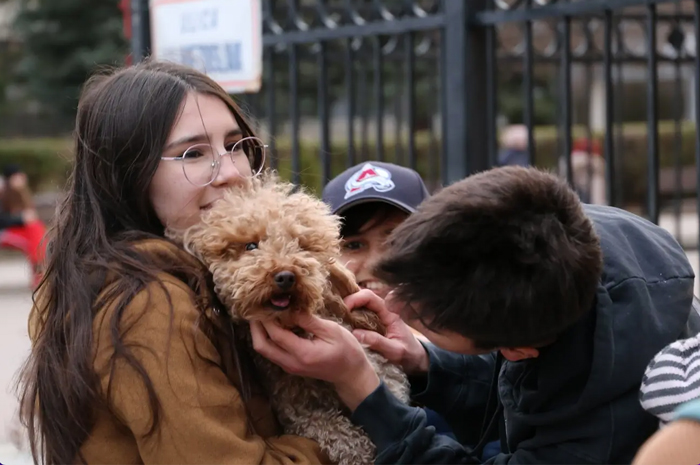
In previous posts shared about Pisecká’s journey, Slovakian police circulated images of the boy smiling warmly with a hat and backpack perched on his shoulders. Greeting the volunteers at the camp despite the harrowing circumstances, officials at the border were stunned by the small boy’s “fearlessness and determination.” They also lauded him as “a hero of the night.”
Guided with only a phone number written on his hand, Pisecká ventured across the border—while the note tied to his waist allowed officials to contact his family in Slovakia. Pisecká was reunited with his four other siblings already in the country in a series of heartwarming pictures and videos shared by the border patrol.
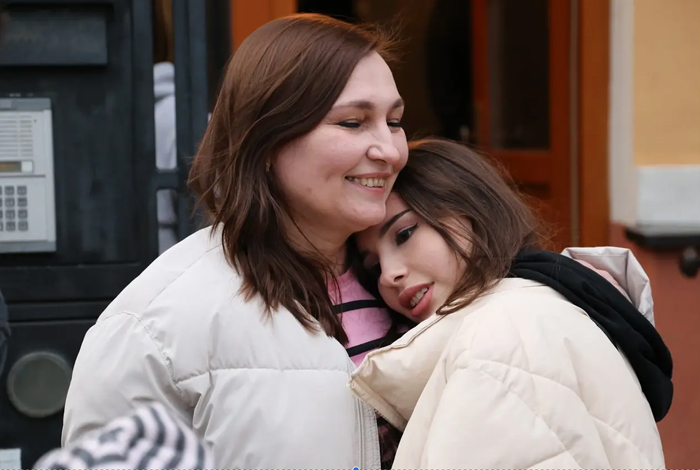
11-year-old Hasan Alkhalaf, who travelled 750 miles alone to flee Ukraine with just his passport and a phone number on his hand, explains, through his sister Luna, how it felt when he was reunited with his brothers and sisters.
— Good Morning Britain (@GMB) March 11, 2022
Watch GMB 👉 https://t.co/6iQ6ebfmuo pic.twitter.com/415GCYZoJJ
Making an appearance on Good Morning Britain, the boy shared how unsure he felt about the future but added that he “is happy to be safe.”
For Pisecká’s siblings, one of the biggest concerns was their mother’s safety and wellbeing. The children were concerned about their mother, saying: “Everyone who was with her her whole life we all left her all in one moment.”
Translating for the young boy, Pisecká’s sister added: “The kids and the people were sitting in the hall, everyone was talking in foreign languages and he wasn’t understanding so that was the scariest [part of the journey] for him.”
Another gripping aspect of Pisecká’s journey involved the train ride. His sister went on to explain: “The train was very, very full, there were 300 people in one carriage.” She also mentioned that the 11-year-old likes Slovakia “because it’s safe. He doesn’t know about the future because he doesn’t know about the situation in Ukraine. He is not thinking about the future, he just wants to be with us.”
The eldest son added: “We think about our mother and we miss our mother.”
Since leaving Ukraine, the entire family has been reunited with their mother in Bratislava. “The train ride was very difficult. Hundreds were crammed in a single car. But we had to escape so our family could be back together,” his mother shared with The Sun.
“I’d like to thank everyone from [the bottom of] my heart. We have to start from scratch. We lost everything we’ve had but we’re healthy,” she continued. For Pisecká, though the journey was gruelling and a big risk for an 11-year-old to brave alone, “he says the most important is to be in the place where he has family,” his sister translated.





